Future Lender

How does defaulting on a student loan affect future borrowing ?
Defaulting on a student loan can severely impact your financial future, including your ability to borrow money. Here's what happens when you default and how it affects future borrowing: 1. **Consequences of Defaulting**: When you fail to make payments on your student loan for an extended period (typically 270 days), it's declared in default. The loan servicer then takes measures like wage garnishment, tax refund offset, and charging collection fees. Your credit score also takes a significant hit. 2. **Impact on Future Borrowing**: - **Difficulty Obtaining New Loans**: Lenders see you as a high-risk borrower, making it hard to get mortgages, car loans, or personal loans. - **Higher Interest Rates**: Even if approved, you face higher interest rates due to your damaged credit score. - **Limited Borrowing Options**: You may only qualify for secured or co-signed loans. - **Trouble Renting Property**: Some landlords check credit scores, and a defaulted loan can hinder your rental applications. - **Impact on Employment Opportunities**: While less common, some employers might check your credit report, affecting job prospects in industries where financial responsibility is crucial. 3. **Recovering from Default**: - **Rehabilitation Programs**: Many lenders offer these to help you make affordable payments over time, removing the default status. - **Consolidation Loans**: You can consolidate your defaulted loan into a new Direct Consolidation Loan through the federal government, making it easier to manage your debt. However, this doesn't remove the default status from your credit report. - **Paying Off the Debt**: If possible, paying off the loan in full removes the default status and improves your borrowing prospects. Negotiating a settlement with your lender or seeking assistance from a nonprofit credit counseling agency are other options.

What happens if I can't repay my student loans ?
Student loans are a common way for individuals to finance their education. However, what happens if you are unable to repay your student loans? This article will explore the consequences of not being able to repay your student loans and provide some suggestions on how to avoid these consequences. If you fail to make payments on your student loans, you will eventually default on your loans. This means that you have failed to make payments for a certain period of time, usually 270 days. Once you default on your loans, the following consequences may occur: - Damage to Your Credit Score: Your credit score will be negatively impacted, which can affect your ability to obtain credit in the future. - Wage Garnishment: The government or your lender may take legal action against you to garnish your wages, which means taking a portion of your paycheck to cover the debt. - Tax Refund Offset: The government may also take a portion of your tax refund to cover the debt. - Loss of Eligibility for Future Financial Aid: You may lose eligibility for future financial aid, including grants and scholarships. In addition to the above consequences, the government or your lender may take legal action against you to recover the debt. This can result in additional fees and court costs, as well as potential damage to your reputation and career prospects. Failing to repay your student loans can have a negative impact on your future opportunities, including difficulty renting an apartment, getting hired, or starting a business. To avoid the consequences of not repaying your student loans, consider the following suggestions: - Create a Budget: Create a budget that includes your monthly expenses and income, and prioritize paying off your student loans as soon as possible. - Explore Repayment Options: Talk to your lender about different repayment options that may be available to you, such as income-driven repayment plans or deferment/forbearance options. - Seek Professional Help: If you are struggling with repayment, seek professional help from a financial advisor or credit counselor who can provide guidance on managing your debt. - Stay in Touch with Your Lender: Keep in touch with your lender and communicate any changes in your financial situation that may affect your ability to repay your loans. - Consider Consolidation or Refinancing: If you have multiple loans with different interest rates and terms, consider consolidating or refinancing them into one loan with a lower interest rate and more manageable repayment terms.

How do I qualify for a mortgage loan ?
This article provides a detailed guide on how to qualify for a mortgage loan, highlighting key factors that lenders consider such as income, credit score, debt-to-income ratio, employment history, and assets and liabilities. It also outlines steps to take in order to increase chances of success including checking your credit score, calculating your DTI, gathering financial documents, shopping around for lenders, getting pre-approved for a loan, finding a home within budget range, making an offer, and completing the closing process.

How long does it take to get approved for a mortgage ?
Getting approved for a mortgage is an essential step in the home buying process. The time it takes to get approved can vary depending on several factors, including your financial situation, the type of loan you are applying for, and the lender you choose. In this article, we will discuss the different stages of the mortgage approval process and provide an estimate of how long each stage typically takes. ## Stage 1: Pre-approval Pre-approval is the initial step in the mortgage approval process. During this stage, you will need to submit various documents to your lender, such as pay stubs, tax returns, and bank statements. Your lender will then review your financial information to determine if you qualify for a mortgage and what size loan you can afford. This stage typically takes around 1-3 business days. ### Documents needed for pre-approval: - Pay stubs from the past two months - W2 forms or tax returns from the past two years - Bank statements from the past two months - Credit report ## Stage 2: Underwriting Once you have been pre-approved, your lender will begin the underwriting process. During this stage, your lender will verify the information you provided during pre-approval and ensure that you meet all of their lending requirements. This stage typically takes around 5-7 business days. ### Tasks performed during underwriting: - Verifying employment and income - Checking credit history and scores - Evaluating assets and liabilities - Assessing property value and condition ## Stage 3: Closing If your lender approves your loan application, you will move on to the closing stage. During this stage, you will sign all of the necessary paperwork to finalize your loan. This stage typically takes around 3-5 business days. ### Tasks performed during closing: - Reviewing final loan documents - Signing loan agreements and disclosures - Paying closing costs and fees - Receiving keys to your new home ## Estimated Timeline for Mortgage Approval In summary, the estimated timeline for getting approved for a mortgage is as follows: 1. Pre-approval: 1-3 business days 2. Underwriting: 5-7 business days 3. Closing: 3-5 business days Overall, it typically takes around 9-15 business days to get approved for a mortgage. However, keep in mind that this timeline can vary depending on factors such as your financial situation, the lender you choose, and any potential delays or issues that may arise during the process.
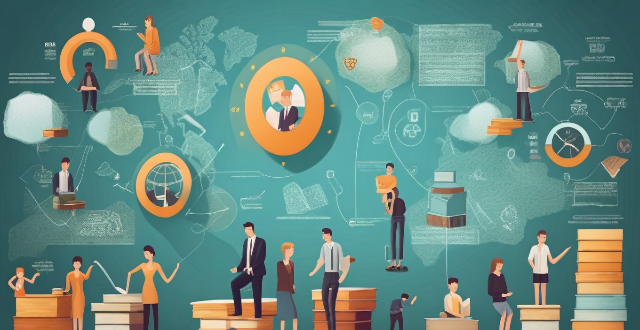
How do interest rates on student loans work ?
Interest rates on student loans are the percentage of the loan amount that borrowers must pay in addition to the principal balance. The interest rate is determined by the lender and can vary based on factors such as creditworthiness, type of loan, and repayment term. There are two main types of student loans: federal and private. Federal student loans have fixed interest rates that are set by Congress each year, while private student loans have variable or fixed interest rates that are determined by the lender. Interest on student loans begins to accrue as soon as the loan is disbursed, and there are several repayment options available for student loans. By choosing the right type of loan and repayment plan, you can minimize your interest costs and pay off your student loans more efficiently.

What is the impact of climate decisions on future generations ?
This text discusses the far-reaching impacts of climate decisions on future generations, including environmental issues such as rising sea levels and loss of biodiversity, economic shifts related to job markets and infrastructure costs, and societal effects like health concerns and political stability. It emphasizes the importance of taking immediate action to mitigate these impacts and create a sustainable future for all.

How does space exploration inspire future generations ?
Space exploration has been a source of inspiration for future generations in various ways, including igniting curiosity and wonder, advancing scientific knowledge, promoting international collaboration, encouraging careers in STEM, inspiring creativity and art, and nurturing resilience and perseverance. As we look toward the future, space exploration will continue to capture the imagination of young people around the world and spur them on to become the next generation of explorers, scientists, and engineers.

What is the future of e-sports and its integration with technology ?
E-sports, or electronic sports, have seen a meteoric rise in popularity over the past decade. As technology continues to evolve at a rapid pace, the future of e-sports looks brighter than ever before. In this article, we will explore the potential integration of e-sports with technology and what it means for the future of competitive gaming.

Can we trust climate models for future predictions ?
Climate models are designed to predict future changes in the Earth's climate based on scientific principles and past observations. Trust in these models depends on factors such as their scientific foundation, data quality, model complexity, intercomparison, historical validation, uncertainty quantification, and continuous improvement. While no model can perfectly predict the future, climate models offer valuable insights into potential future scenarios based on current knowledge and understanding. However, it is important to recognize their limitations and uncertainties when interpreting their results.

What is the future of carbon credit systems ?
The future of carbon credit systems is uncertain and depends on various factors such as policy decisions, technological advancements, public opinion, and market dynamics. Governments play a crucial role in shaping the future of these systems through regulations and enforcement. Technological innovations can both increase and decrease the value of carbon credits. Public opinion can drive demand for carbon credits, while market dynamics will shape the industry's evolution. Despite challenges, there are opportunities for growth and improvement in this important area of environmental protection.

How can wind energy contribute to a sustainable future ?
Wind energy is a renewable and sustainable source of power that can significantly contribute to a more sustainable future. It offers several benefits including reducing carbon emissions, stimulating economic growth, enhancing energy security, driving technological innovation, compatible land use, community engagement, scalability, improving health impacts, and promoting education and awareness. By incorporating wind energy into our energy mix, we can create a cleaner, healthier, and more sustainable environment for future generations.

What is the future outlook for private equity ?
Private equity (PE) is a dynamic sector of the financial industry that involves investing in or acquiring companies, typically with the aim of improving their operations and selling them at a profit within a few years. The future outlook for private equity is influenced by various factors such as economic conditions, technological advancements, regulatory changes, and market trends. Here's a detailed analysis of what the future might hold for private equity: Economic Influences: Global Economic Growth, Interest Rates, Market Volatility Technological Advancements: Digitization, Artificial Intelligence and Machine Learning, Blockchain Regulatory Changes: Stricter Regulations, Tax Laws Market Trends: ESG Investing, Diversification, Exit Strategies Industry Evolution: Consolidation, Secondary Markets, Direct Investments Challenges and Opportunities: Competition, Talent Retention, Innovation In conclusion, the future of private equity looks promising but not without its challenges. The industry is set to evolve with changing economic conditions, technological advancements, regulatory shifts, and market trends. PE firms that adapt and innovate will be well-positioned to thrive in this dynamic environment.

Can climate data analysis accurately predict future weather patterns ?
Climate data analysis, utilizing sophisticated climate models based on physical laws and accounting for complex interactions within the Earth system, plays a crucial role in predicting future weather patterns. These models allow scenario-based projections and ensemble forecasting to account for uncertainties. While they are continuously improved as new scientific understanding emerges, it's important to distinguish between weather forecasting (short-term events) and climate prediction (long-term trends). Climate prediction involves more variables, broader trends, external forcings, and wider confidence intervals compared to weather forecasting. However, climate models face uncertainties such as natural variability, model discrepancies, emission scenarios, feedback mechanisms, and regional differences. Despite these challenges, climate science has made progress in predicting aspects like global warming, sea level rise, extreme weather events, regional changes, and carbon cycle responses. In conclusion, climate data analysis can provide valuable insights into potential future climate patterns but comes with inherent uncertainties, especially in forecasting specific weather events far into the future. Ongoing advancements in climate science aid in developing informed policies and adaptation strategies.

How accurate are climate models in predicting future weather patterns ?
Climate models are complex mathematical representations designed to predict future weather patterns. The accuracy of these models is influenced by factors such as data quality, model complexity, and uncertainty in future emissions. Limitations include less accurate short-term predictions and uncertainty in model projections. Potential improvements include better data collection, advances in modeling techniques, and collaboration across disciplines.
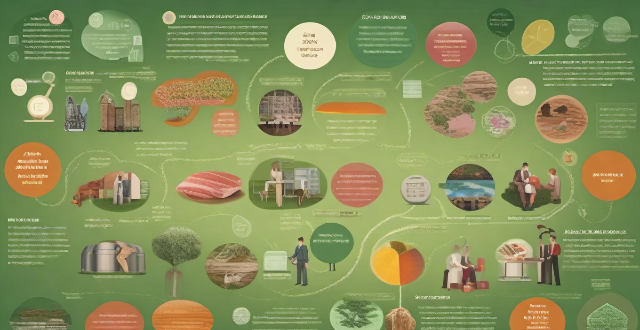
What policies can be implemented to reduce the number of climate refugees in the future ?
Policies to reduce the number of climate refugees in the future include investment in renewable energy, afforestation and reforestation, sustainable agriculture practices, coastal protection measures, and international cooperation and funding. These policies aim to mitigate the effects of climate change and prevent displacement of people due to climate change-related events.
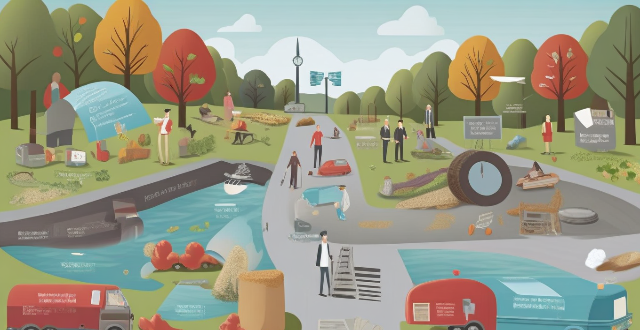
What are the implications of climate change negotiations for future generations ?
The implications of climate change negotiations for future generations are significant and multifaceted, affecting various aspects of life, including the environment, economy, society, and politics. Effective negotiations can lead to preserved natural ecosystems, mitigation of extreme weather events, job creation in renewable energy sector, reduction in energy costs, improved public health, enhanced quality of life, global cooperation, and leadership and innovation. These benefits highlight the importance of prioritizing the interests of future generations in climate change negotiations to ensure a sustainable and equitable world for all.

What are the implications of climate change for future generations ?
Climate change has significant implications for future generations, including rising sea levels, extreme weather events, food security, and health impacts. Rising sea levels can lead to flooding, displacement of communities, and loss of habitat for marine life. Extreme weather events can cause loss of life, destruction of infrastructure, and long-term changes in ecosystem structure and function. Climate change can also affect global food production, particularly in regions that are already vulnerable to food insecurity. Changes in temperature and precipitation patterns can affect crop yields, pest and disease outbreaks, and water availability for agriculture. Additionally, climate change can have significant impacts on human health, including increased risk of infectious diseases, respiratory illnesses, and mental health problems. The challenges presented by climate change require urgent action from individuals, governments, and organizations around the world to mitigate its effects and ensure a sustainable future for all.

What are the implications of climate change for future generations, specifically children ?
Climate change poses significant challenges and threats to future generations, particularly children. The implications of climate change for children are multifaceted and far-reaching, affecting their health, safety, education, and overall well-being. Health implications include increased respiratory problems, spread of infectious diseases, and nutritional deficiencies due to extreme weather events and changing precipitation patterns. Safety risks involve natural disasters and heat stress, while education is affected by disruption of learning and limited access to educational resources. Overall well-being implications include mental health issues, loss of cultural heritage, and economic impacts on families and communities. Addressing these challenges requires urgent action to mitigate the effects of climate change and adapt to its inevitable consequences, ensuring a healthier, safer, and more equitable future for all children.
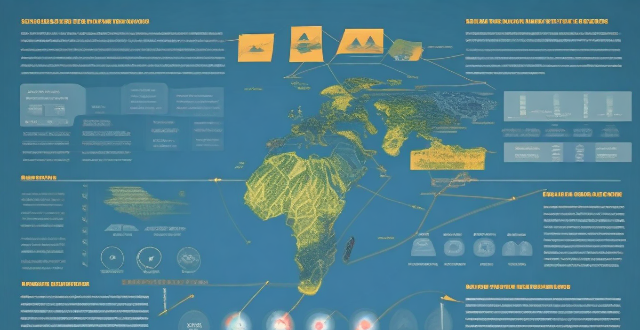
How does climate change influence the future of remote work and virtual employment ?
The article discusses the impact of climate change on the future of remote work and virtual employment. It states that rising temperatures, extreme weather events, and environmental concerns are driving factors for the shift towards remote work arrangements. As a result, there is an increasing demand for remote work options, technology advancements to support virtual employment, and a changing work culture that focuses on results rather than physical presence. The article concludes that embracing these changes can lead to a sustainable and efficient future of work.

What are the potential long-term consequences of climate change for future generations ?
The potential long-term consequences of climate change for future generations include environmental, social, and economic impacts. Environmentally, rising sea levels can cause coastal erosion and loss of island nations, while extreme weather events like hurricanes and wildfires become more frequent. Biodiversity loss is also a major concern, with species extinction and the spread of invasive species disrupting ecosystems. Socially, food security is threatened by changes in crop yields and water scarcity, while health risks increase due to heat-related illnesses and the spread of diseases. Displacement and migration may lead to conflict and instability. Economically, decreased productivity in agriculture and fisheries, increased adaptation and mitigation costs, and job losses contribute to economic instability. Addressing climate change requires global cooperation and significant investments in both adaptation and mitigation strategies to ensure a sustainable future.
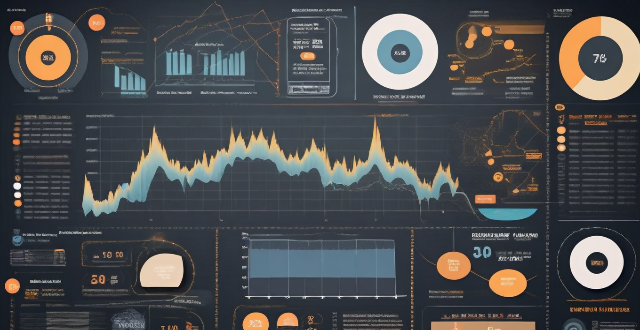
How do you use historical data to make predictions about future stock market performance ?
Predicting the stock market's future performance is a complex task that involves analyzing various factors. One common method used by investors and analysts is to study historical data, which can help make informed predictions about future market performance. To use historical data for stock market predictions, it is essential to identify key metrics such as price movements, volume, earnings reports, and economic indicators. Once these metrics are identified, analyze the historical data to identify trends and patterns through technical analysis techniques like moving averages, support and resistance levels, and candlestick patterns. Additionally, consider using fundamental analysis to evaluate underlying factors that drive stock prices, such as financial statements, industry trends, and macroeconomic factors. With the advancement of technology, machine learning and AI models have become popular tools for predicting stock market performance, including neural networks, reinforcement learning, and deep learning. Combining different methods of analysis can lead to more accurate predictions about future stock market performance. However, it's important to remember that no method is foolproof, and there will always be an element of risk involved in investing in the stock market.

What measures are taken to protect and preserve heritage sites for future generations ?
Heritage sites are invaluable treasures that provide insight into the history, culture, and traditions of a community or civilization. It is essential to protect and preserve these sites for future generations to appreciate and learn from. Here are some measures taken to safeguard heritage sites: 1. Legislation and Policies 2. Conservation and Restoration 3. Community Involvement and Education 4. Research and Documentation 5. Security Measures 6. Sustainable Tourism Practices

What happens if I miss a mortgage payment ?
Missing a mortgage payment can lead to immediate financial penalties, negatively impact your creditworthiness, and put your home at risk in the long term. It's essential to communicate with your lender early and explore all possible options to mitigate the consequences before they spiral out of control.

What is private mortgage insurance (PMI) and do I need it ?
Private Mortgage Insurance (PMI) is a type of insurance that protects the lender, not the borrower, in case of default on a mortgage loan. It is typically required when a homebuyer makes a down payment of less than 20% of the home's purchase price. Whether you need PMI depends on factors such as your down payment, credit score, loan-to-value ratio, and type of loan. Consider the cost of PMI and alternatives before deciding to obtain it.
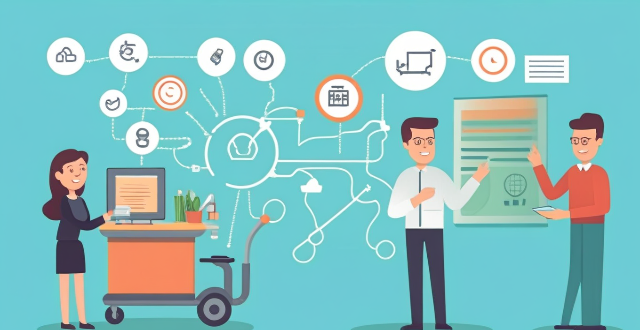
Can you consolidate multiple student loans into one payment ?
Consolidating multiple student loans into one payment simplifies monthly expenses and can reduce overall interest rates. The process involves taking out a new loan to pay off existing ones, resulting in a single fixed interest rate and monthly payment. Benefits include lower monthly payments and easier management, but potential drawbacks such as longer repayment periods and loss of lender benefits should be considered. Successful consolidation requires evaluating current loans, comparing offers, and understanding all terms before committing.

How do I apply for a student loan ?
This text provides a comprehensive guide on how to apply for a student loan. It outlines nine steps, including determining needs, researching loan options, checking eligibility requirements, gathering documents, completing and submitting the application form, waiting for approval, signing promissory notes and loan agreements, and receiving disbursement of loan funds. The guide emphasizes the importance of understanding different loan options and their terms and conditions before applying. It also highlights the need to gather all necessary documents and provide accurate information in the application form. Overall, this text is an essential resource for students seeking financial assistance for their education.

Can I pay off my mortgage early without penalty ?
Paying off a mortgage early can save homeowners significant interest, but it's crucial to understand potential prepayment penalties. Mortgages often include clauses that either allow for penalty-free prepayments or impose fees for early payoffs. Homeowners should review their loan agreements, contact lenders for clarification, and assess the financial implications before deciding to pay off their mortgage early. Alternative strategies like refinancing or making smaller extra payments within allowed limits can also be considered to avoid penalties and achieve financial goals.

What is the process of applying for a mortgage ?
The process of applying for a mortgage involves several steps, including determining your budget, checking your credit score, shopping for lenders and loan programs, gathering necessary documents, submitting your application, underwriting and approval, and closing the deal. It's important to carefully review all paperwork and pay closing costs before officially becoming a homeowner.

Can I refinance my mortgage to get a lower interest rate ?
Refinancing a mortgage can lead to lower interest rates and monthly savings, but involves costs like closing fees. Eligibility depends on credit score, equity, and DTI ratio. Consider market conditions and break-even point before deciding. The process includes researching, applying, providing documentation, appraisal, underwriting, closing, and funding. Alternatives include recasting, loan modification, and government programs.
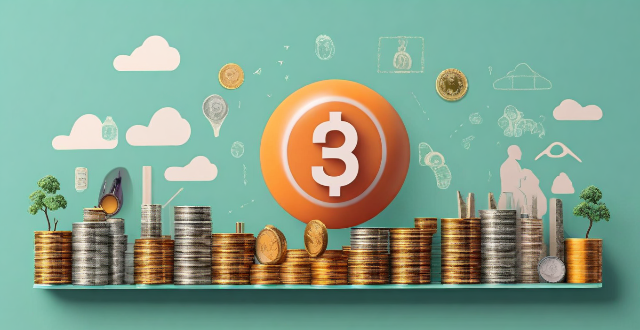
How do I educate my teenager about budgeting and money management ?
Teaching your teenager about budgeting and money management is crucial for their financial independence and future success. Start with basic concepts, provide an allowance to practice, set financial goals together, introduce banking and investment principles, use technology, lead by example, encourage part-time work, discuss credit and debt, and plan for the future. This continuous process requires patience, consistency, and practical examples to set your teen on a path to financial stability.